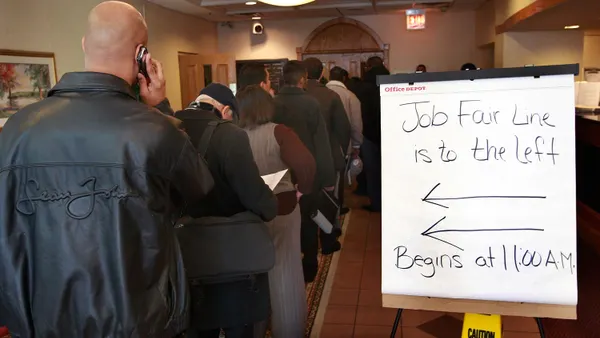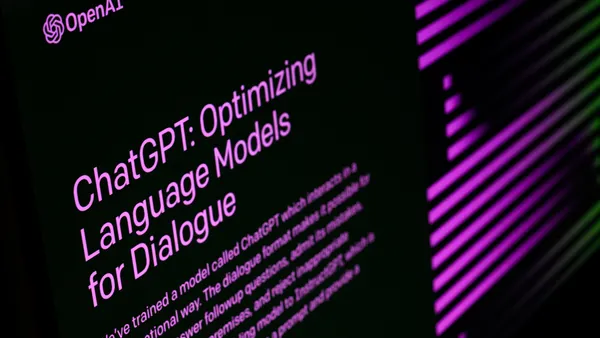The total share of interview reviews on Glassdoor that mention ghosting have more than doubled since the pandemic began, according to an Oct. 26 report from Glassdoor.
In October, 3.1% of interview reviews submitted on Glassdoor mentioned ghosting, up 112% from the beginning of the pandemic and up 7% from this time last year.
“Stopping all communication with a candidate with no explanation is obviously poor form, so it’s not surprising that 87% of interview reviews mentioning ghosting report an overall negative experience with prospective employers,” the Glassdoor Economic Research team wrote.
In an analysis of more than 1 million interview reviews left on Glassdoor by U.S. job seekers, several trends emerged. Ghosting was mentioned in 5.4% of interview reviews where the candidate obtained an interview opportunity through a recruiter, as compared with 3.8% of those who simply applied online.
That means those who received direct communication from a recruiter were 1.4 times more likely to be ghosted — or perhaps more likely to complain about ghosting — than those who simply applied online, according to Glassdoor. Candidates with a referral mentioned ghosting in 2.2% of reviews.
By industry, candidates mentioned ghosting the most in media and communication (5.1%), pharmaceutical and biotechnology (4.4%) and human resources and staffing (4.2%). Ghosting was mentioned the least in government and public administration (1.3%) and restaurants and food service (.7%).
Notably, industry data may not reflect where ghosting is happening more but where job seekers are mentioning it more, according to the report. Some industries may have candidates who are more surprised or upset about the behavior or are generally more likely to mention ghosting in a review.
“It’s hard to confirm with certainty why exactly the topic of ghosting is being mentioned at an accelerated rate on Glassdoor,” the Glassdoor Economic Research team wrote. “But it is easy to see with certainty that it’s not only causing a negative candidate experience, but those candidates are also becoming more comfortable sharing that experience in a public forum.”
More than half of job seekers say they’ve been ghosted after an interview, according to a Greenhouse survey. Underrepresented candidates had a 20% higher chance of being ghosted than White candidates, the firm reported, and male candidates were 28% more likely to be ghosted than female candidates.
Recruiter ghosting can happen for multiple reasons, which can lead to a lack of closure and feelings of rejection, self-doubt and frustration. To keep job seekers on the same page, talent acquisition professionals can outline the steps of the hiring process and projected timelines, as well as regularly update candidates on their application status.










